Momma Interviews "Expert Edition" featuring Michelle Peterson
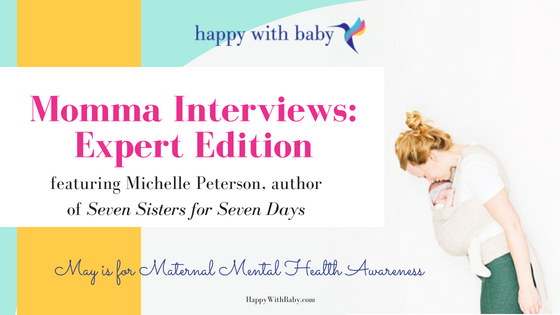
May is Maternal Mental Health Awareness Month, so I've relaunched my "Momma Interviews" series--This time with an extra special set of moms. These mommas also work to support other moms and their families during the transition into new parenthood and beyond. I'm calling it the "Expert Edition", but I think you'll find that while these women definitely are experts in their work, parenthood has a way of making a beginner out of everybody. Even experts get surprised by the unexpected and learn new bits of wisdom while in the trenches!
This series is all about their experiences with motherhood, in the hopes that it provides you with some validation and new tips to try. Because for all the many different ways there are to be a mom (and there are definitely MANY ways to do it right), it's so amazing how much we moms all really have in common.
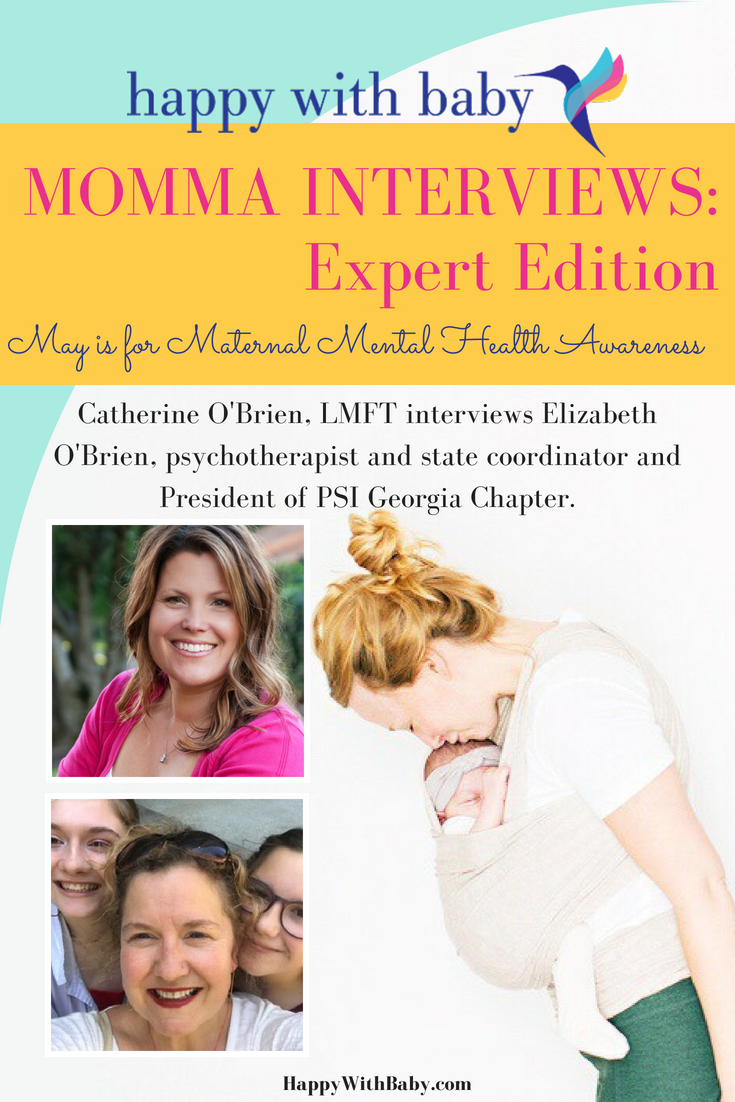
Mommas, I'm so excited to share this interview with Michelle Peterson with you!
Michelle Peterson is the author of the book 'Seven Sisters for Seven Days: A Mothers' Manual for Community-Based Postpartum Care', She empowers new mothers with resources to get the care they need in the postpartum period.
Scroll down to watch the interview, read the transcript or learn more about Michelle.
Get to Know Michelle:
Unique Family Make-Up:
Single, with two boys.
Most moms I speak to say there are moments when they are ready to throw in the towel. Can you describe a time you felt this way? What got you through it?
I was alone while my former partner worked long days for the first two years postpartum with my first son. If it was not for my friends coming by and keeping me company, and recognizing I needed more support, I could have gotten really depressed!
What do you do when you feel overwhelmed, overstretched, or less than?
I meditate. I take care of my adrenals. I cut down socializing and expenditure of energy to the best of my ability, and recharge.
Any can't-live-without-it gadgets, products or hacks that have made mom life easier or better for you?
Community support. But in all seriousness, Playdoh? Outdoor time? I have to think on this.
Watch the Video:
https://www.youtube.com/watch?v=GnDl-rD4EE4&w=854&h=480
Michelle's Quotables:
Interview Transcript:
Catherine: Hi, thank you so much for coming back. I'm Catherine O'Brien at HappyWithBaby.com. Today I'm here with Michelle Peterson and she's actually the author of the book, "Seven Sisters for Seven Days: A Mother's Manual for Community Based Postpartum Care." I actually have her book here which is really awesome. Michelle, thank you so much for being with us today.
Michelle: Thanks for having me. Happy to be here.
Catherine: Why don't you tell us a little bit about what compelled you to get into your work with maternal mental health. I love this idea of community based postpartum care because I know that's a huge issue I speak to moms about all the time.
Michelle: Well, I have two boys. With my first postpartum, I was one of the first people in my group that got pregnant. I felt wildly isolated. I didn't know what to ask for. I was this really strong self-directed woman, I can handle it. It annihilated me. I couldn't make food for myself. My son, when I'm in the Moby, and you'd have to bounce to get him to sleep. I remember trying to make food and go to the bathroom, just do anything. It was really hard and my husband at the time worked really long hours. Leave at 8:00 am, be home 9:00 pm. We didn't know, we set it up that way. He kept doing what he was doing not knowing and I'm at home with the baby. I didn't have any mom friends yet besides my midwife. I felt so isolated, depleted. I had health issues crop up, probably because I was so depleted. After going through that was harrowing. I didn't let myself fully feel how hard it was probably until I got pregnant again. I spent three years healing, thyroid issues, gut issues, adrenal fatigue at 31.
Michelle: Then we finally got pregnant with our second and all I could think about was, "I don't want to do that again." That's all I could think about and then it hit me how hard it really was. I can't be that isolated again. To me it was the killer of dreams just being in a fog by myself. I think a lot of people are afraid to say that's happening because they think that it means they don't love their baby or people are going to judge that they don't love being a mother. I tell moms it's okay to work out and-
Catherine: Yeah, it's hard.
Michelle: It's a big life transition. It just is. I think we're afraid to talk about it.
Catherine: We weren't meant to do it by ourselves, right? It's hard because we're not meant to do it by ourselves.
Michelle: Not at all. Everyone's so isolated now and the nuclear family has really isolated people and belief systems and however you want to name it. That was the inspiration was that, "I'm not gonna go through this again." I hired a doula, a postpartum doula, she got pregnant. I had to come up with something, so I created a system with my family and friends. One of my dear sisters was like, "Why don't you have all us come and help you?" That's a really good idea.
Michelle: And that's how it started. The seed was, "I'm not doing it like that again." The whole system that I created was born from my need and other women started doing it. My midwife asked me to teach it and then I thought, "Well, maybe I'll just put it in a book because I want other moms to use it and families. I don't want them to have to suffer like I did." Your family and friends want to help but they don't often know what to do. So it spells it out for them.
Catherine: We often don't know what to tell them. That's what I get a lot, I don't even know what to ask for. I don't know what to tell people I want. Or the other piece being, and maybe you can speak to this, is how do you ask for help? I tell moms and dads all the time, I'm guessing there's people who have said, "Let me know what you need." And you're like, "Oh, okay," and you just brush it off. I think for the most part people do really want to help you, you just have to tell them what you need and I think, on some levels, getting past ourselves, too, and being able to ask for it. Of course you have to ask for it. None of us need to do this by ourselves or suffer or anything like that.
Michelle: For new moms, how are they gonna know what they need? It's not like they wanna hear, "This might be really hard." Nobody needs to hear that and you don't want to say it. One of the-
Catherine: I think we think it's not going to ... like I think we're like, "Oh, no." Because I have this, I have a good support system. I was a therapist and I had a great husband, I thought, "What could go wrong in my relationship?" And then I was like, "Holy moly, how could it not?" Sleep deprivation, not getting adequate nutrients and all those things.
Michelle: It's really funny, isn't it? I was getting projectile vomited on and my hair would be full of milk, it's really funny. You look back on it and it is funny. I tell moms that too, "You're gonna look back and you're going to remember." I remember being up at 3:00 am under the moonlight doing the bounce dance and it was a sweet memory, even though at the time I'm like, "I am so tired, but it is really beautiful, but I'm so tired." It terms of getting clear on what you need, if it's a new mom, I really encourage people that work with moms to get them into some kind of community group where they can talk to other families.
Catherine: I always have my ways where I suggest people to look but maybe you have some other ideas. How do you encourage moms and dads to find their community support? What avenues do you tell them to look?
Michelle: It's tricky, right-
Catherine: I think sometimes we don't know how to look for it.
Michelle: A big piece is not everyone has community awareness in their life or even thinks like that. That's huge, that's like, "We don't ask for help." That's big, big, big in our culture. If they're doing it through a midwifery center or a birth center or through a hospital that has groups, they can get connected with those groups. That's the easiest way it's happened, but if they're not connected in that way and they come across the system through the book or through someone who facilitates it ... say it's someone who comes across it through the book which is the people that often have the hardest time developing it because they don't have those other connections ... I'm trying to think. I might ask them or suggest to them to join a baby wearing group or a mothers' group or the Leche League. The biggest roadblock I hit with people is they don't want to ask. I've had people hire me for consulting and then not build a team, many times. I hear from them a couple months later when they're having a hard time and that's the biggest hurdle.
Michelle: The first one is bringing the awareness that they're going to need it. A lot of, "I'm not going to need that, I have what I need." The second is being willing to ask for help and seeing the value in it, the big picture. How it will benefit not only the mother and the child but bonding, the relationship, the marriage if they're married, or the partnership, all of it. You're building a foundation of wellness. You're building it on strength not depletion.
Michelle: I think building an awareness of how to act and think like a community which means being willing to be vulnerable, being willing to tell people what you need, which for women is a big one. My whole other book that I'm working on, it's just around the emotional blocks that I kept hitting with people I was meeting. I was like, "Wow, these women have a really hard time receiving." You're gonna be tired, depleted, and also a lot of great stuff that outweighs it, but let's build you up. We look at our divorce rates the first year after a child, right, don't they skyrocket after the first year of a child coming in?
Catherine: Yeah, like 90% report marital dissatisfaction that first year. That's a staggering percentage, right. It doesn't get better over time, it's still around 70% three years later.
Michelle: I see it all of the time. It's hard to see.
Catherine: Community support is so huge because we need that. It can't just be me and my partner, right. You can't sustain that long term. Having that community base for your mental health well being, that was one of my things, going to these moms' groups was like, "Oh, this was a sanity saver. I just needed to get out of the house and go somewhere where I saw other people," whether I talked or not. I just needed to see that other people were doing it, too. I had no clue what I was doing.
Michelle: I had this one mom, we became friends when our babies were ... mine was six months, hers was one month, they're boys, they're best friends now. But we both were pulling our hair out, we had each other to reflect. "I felt really crazy today, I'm so tired, I haven't slept," and she's like, "Me too." And I'm like, "Oh, thank God I'm not the only one." You start to think-
Catherine: You're the only one.
Michelle: ... if it's your first, you're the only one. When else have you been sleep deprivation?
Catherine: Not like this, because people are like-
Michelle: Nursing.
Catherine: ... "Oh, I've been tired, I went to college, I did all nighters." Multiple months in a row all nighters, no. There's no fatigue like new parent fatigue. There's really no way to explain it. I'll tell people they do torture people with sleep deprivation, this is a real thing, going crazy. Speaking to the [inaudible 00:12:38] moms' groups. Never have I had a mom say, "I felt this way about something," and have no one say, "Oh, I've felt that way too." There's always someone else that's like, "Oh yeah, I've felt that way," or, "That's happening to me," or, "You'll get through it because I remember when it happened it me." Even as different as we are, there's so many similarities and feelings and stuff that we experience.
Catherine: What do you want all moms to know about maternal mental health and the importance of even this book that you've written?
Michelle: The main thing is recognizing the importance of valuing themselves enough to take good care of themselves and ask for help. It's not just salt baths or a glass of wine or getting away, it's building foundations because you're going to be giving so much of yourself inherently. It's what all mothers I've ever met do. They just give [inaudible 00:13:36], right. Recognizing that we cherish what we value.
Michelle: I always make a joke, I've said this in so many interviews. People, when they're planning a trip, they go on Trip Advisor and research the heck out of it. How about you plan your postpartum like that because it's pretty important. Invest in not just the products but maybe hiring a doula or a chef. I get not everyone can do that, but just getting creative in how you can make it easier on yourself. I'm the mind, there's always a way. It's a money thing then you figure out, freeze a lot of meals, but invest in you. You're gonna give, give, give, give, give. You're not just investing in you, you're investing in your child and you're investing in your partnership if you have one and everyone benefits when the mom is thriving.
Michelle: The other piece is, it will pass. It's only temporary. It's good to have a really good sense of humor and recognize that it's temporary. One of my practices, I call it radical acceptance where it's just loving what is. If your house is a mess and you're too tired to clean it, embrace is. It's chaos, embrace it, you have children. That's what I do, I'm like, "Okay, this is what's happening, I'm not going to fight with reality. Okay." I'll clean it when I do, what's most important is everyone's fed and we're stable.
Michelle: Pieces like that, but really recognizing the value in caring for each other and letting people help. The thing about community groups is everyone's gonna pass it on. Almost every Seven Sister that I had in my postpartum I served them in one way or another, I think five out of seven of them. We all cross pollinated and helped each other, it's not like you're the sole receiver, you'll pass it on, and you'll want to because you'll see the value in it.
Catherine: I love that.
Michelle: It's a circle. I love that.
Catherine: How do you balance everything as a mom and working?
Michelle: I meditate morning and night. It might sound like a little thing but to me it changed my life. You get up 15 minutes earlier and I start the day, I don't go to a phone or nothing. I just sit and I get quiet and I breathe. I do it before I go to bed. My kids will come in and sit with me if they wake up. They know it's what mom does and I just center.
Michelle: One of my main things is I take care of my adrenals. I work with my naturopath on ... something's making noise on my phone right now. On my computer. I don't know what's happening but it will stop I think. Hold on. I'm sorry.
Catherine: No, it's okay.
Michelle: Technology. Still there?
Catherine: Yeah.
Michelle: Okay, here we are. Adrenals, meditation. All my herbs and stuff from my naturopath. I'll call it "shut it down" where I won't go out, I won't socialize, I'll literally shut everything down until I'm full up. I did my little mini baby moon. Everybody's out until I'm balanced because I know the cost of it. I have to. I'm a single mom now, there dad's ... I'm doing a lot. I'm with the kids full time, pretty much. I'm doing that, I'm working. Take care of my horses, business. I have to or-
Catherine: I like how you said valuing yourself and now your kids even know like, "Oh." They know how to give you that space, like, "Oh, mom's meditating so I can sit with her but I'm not going to ask of her." You've set that boundary for them and I think that's really important. That's awesome.
Michelle: It kind of blows my mind because my youngest is four and half and he's a tornado of energy. He came in this morning and he sat in my lap and he wrapped the shawl around me and he sits. He's like, "This is what happens." Who would have thought? People say, "My kids will never sit still," and you'd be surprised.
Catherine: I think when they see us take care of ourselves they learn. They watch everything we do, the good, the bad, the ugly. They're going to pick up on it. It might not be immediately but eventually they'll pick up on it and they'll know, like, "Oh, this is mom's time, this is her space, I'm gonna..." We don't have to keep giving because they ask. We've got to have those limits too and they learn to have those boundaries. That's awesome, that's awesome.
Michelle: That's a healthy distinction.
Catherine: What do you feel like is your greatest personal struggle with your experiences in motherhood?
Michelle: For me, with my first it was the lost of identity and not knowing how to ... that was big, that was hard for me. [inaudible 00:18:36] now, I just felt like I was at home all the time and you're not supposed to ... you know, "I'm grateful, I get to stay at home with them." And of course I was, I did it for six years. It was the loss of identity and just that big change and trying to figure out how to be in the world. I had a lot of friendships change because I was always the one that took care of every ... not took care of everybody, but I'd be the one that people come to with stuff. You're a mom with a baby, it's like, "Everybody out, I'm busy." So I had a lot of friendships change. That was the hardest part. And not sleeping. [crosstalk 00:19:17]
Catherine: What do you feel is the greatest lesson that you've learned as a mom?
Michelle: How to embrace things as they are.
Catherine: That's a big one.
Michelle: Your kids are unpredictable. The best thing for me is this is what's happening now. What's frustrating, you have a new baby and they'll do the thing where they get in a sleep cycle and then you'll get comfortable and then they change it. For example.
Catherine: Yes, yes, always. Right when you think you know what you're doing, they change it.
Michelle: Right. So that was really hard for me. I was like, "[inaudible 00:19:50] No, no, it's changed again now." With my second, it was like, this is just what he's doing now. What are you going to do? That really helped me. That's a great life practice because you let go.
Catherine: Absolutely, absolutely.
Michelle: Or not.
Catherine: If you can only have one, what's one piece of advice you'd like to give other mothers going through this time? [crosstalk 00:20:17]
Michelle: My main thing would be to value yourself and what you're giving like I said earlier. See the importance in taking care of yourself and setting up systems of support. Be willing to receive help, really recognize the value of getting care. You don't have to do it alone, you don't have to do it alone. With moms, if you don't have a mothers' group, create one. That's what I did. I needed it. It became a big thing, now it's huge, another mom took over, there's like 300 members.
Catherine: That's awesome. And there's so many ways now to be able to create your own moms' group. I can guarantee you, if you can't find a group you want to be in, create one because there's moms that need you, need your group. There's so many moms that are lonely. I talk to moms all the time that just can't find their people, their group, which is really hard. You can go on Facebook and create groups. You can go Meetup and create groups. You can go to the park and create a group. Find a way, just even connecting with one other mom and inviting somebody. You just keep inviting other people.
Michelle: That really helps.
Catherine: I love what you do, tell us how we can find your book.
Michelle: You can find it through Praeclarus Press which is the press, obviously. P-r-a-e-c-l-a-r-u-s. I send people to order through them, or Amazon. It's on Amazon and there's Kindle on Amazon. I don't sell them through me anymore because it's just too much. Go to the press, go to Amazon, for some reason, me in the post office and kids ... I like to keep things simple.
Catherine: It's hard to get to the post office. I had a dad tell me one time, "I just don't understand why she can't go to the post office and pick up that package for me." I'm like, "Do you realize ... " And I did, I came to her place, I'm like, "You have no idea how hard it is to take a baby, get the baby into the car seat, drive to the post office, take the baby out, hope they didn't need to eat or change the diaper, and then go in there and wait for however long to..." It's not easy to go to the post office. I think it's getting easier, there's easier methods nowadays but it's not easy to go to the post office.
Michelle: It is, it's easier now that my kids are older. I'm always looking ways to simplify. I'm like, go get the books out real fast. I let them do it.
Catherine: Simplify. I love it, I love it. Simplify, that's good. That's a good added bonus tip, however you can make it easier, do it.
Catherine: Well, thank you so much for being here with us.
Michelle: Thank you for having me.
Catherine: Is there any other parting wisdom or anything you want to say before we go?
Michelle: One of my favorite quotes by [inaudible 00:23:11] is something like, "A good mother will give all of herself, but she has to have a self to give." You're going to be a good mother no matter what, but recognize the importance of filling the cup, as it were.
Catherine: I feel like several interviews I've done recently, that's been one of the common themes. We've got to take care of ourselves before we can give to anybody else.
Michelle: It's just the way it goes.
Catherine: Usually we're at the bottom. You can do it until there's nothing else and we're totally depleted and then what happens? Put yourself at the top of that list.
Michelle: Yes, yes, because everybody's going to be coming.
Catherine: Well thank you so much, it was so nice chatting with you.
Michelle: Thanks for having me.
Catherine: Alright.
Michelle: Bye.
About Michelle Peterson:
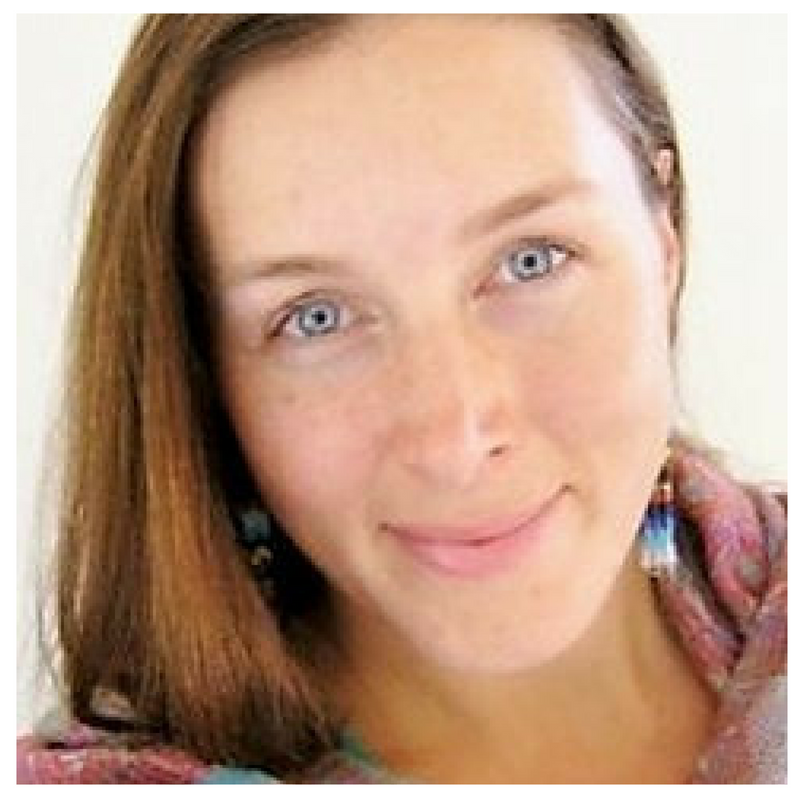
Michelle Peterson's book Sisters for Seven Days: A Mothers' Manual for Community-Based Postpartum Care, empowers new mothers with resources to get the care they need in the postpartum period. Starting with her own experiences as a new mother, including exhaustive research and insightful philosophy, Peterson has developed an effective program to help mothers mobilize support in their communities, while strengthening community bonds to provide postpartum women the often-neglected help that they need. Michelle offers one on one postpartum planning consultations and support, online classes, in person trainings and workshops, and Seven Sisters Facilitator trainings.
Connect with Elizabeth:
Subscribe
Sign up to get the latest weekly blogs sent straight to your inbox


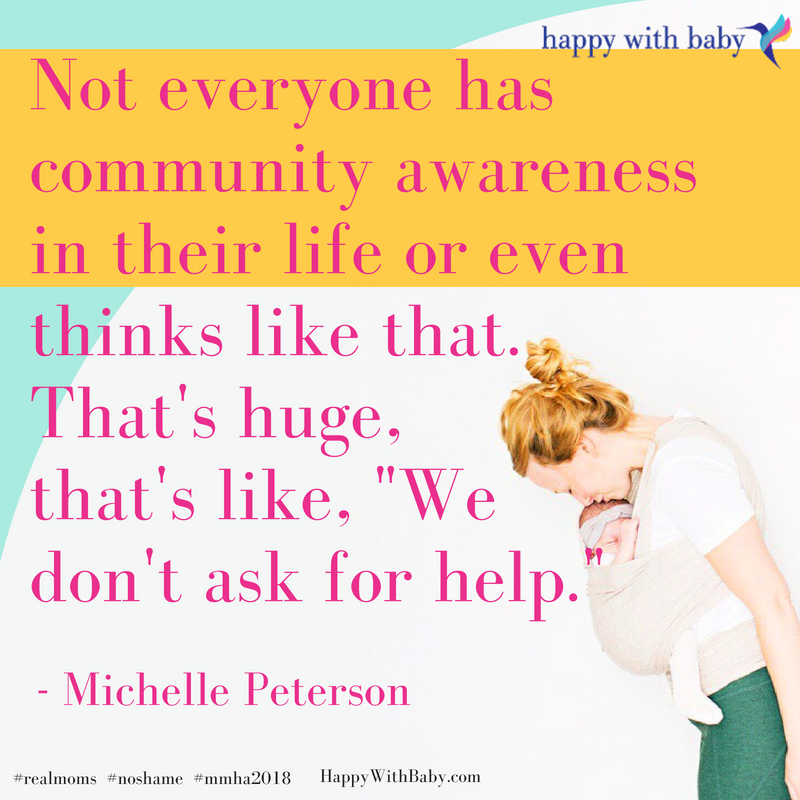
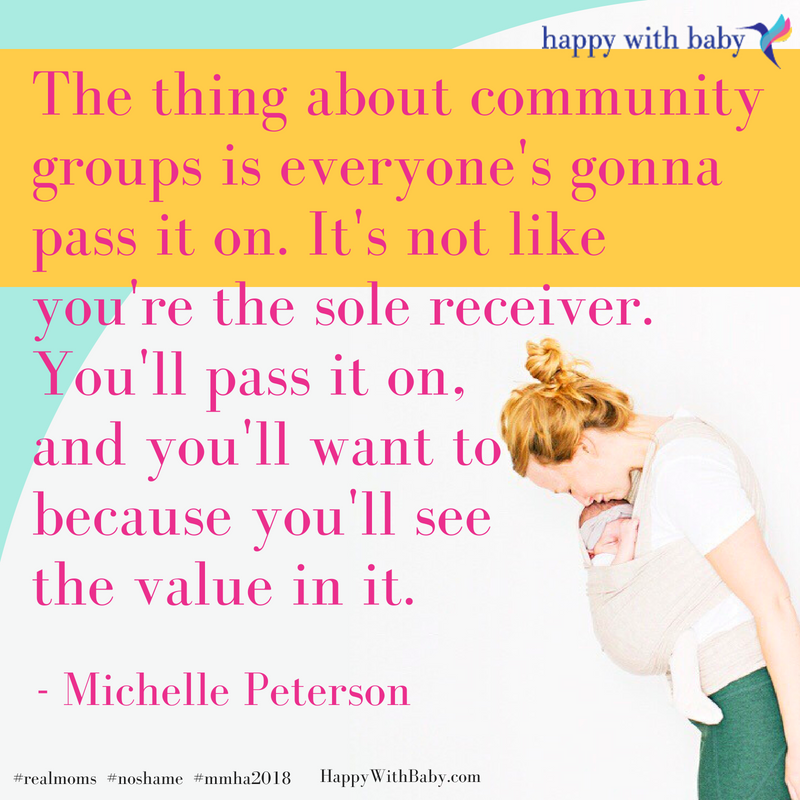
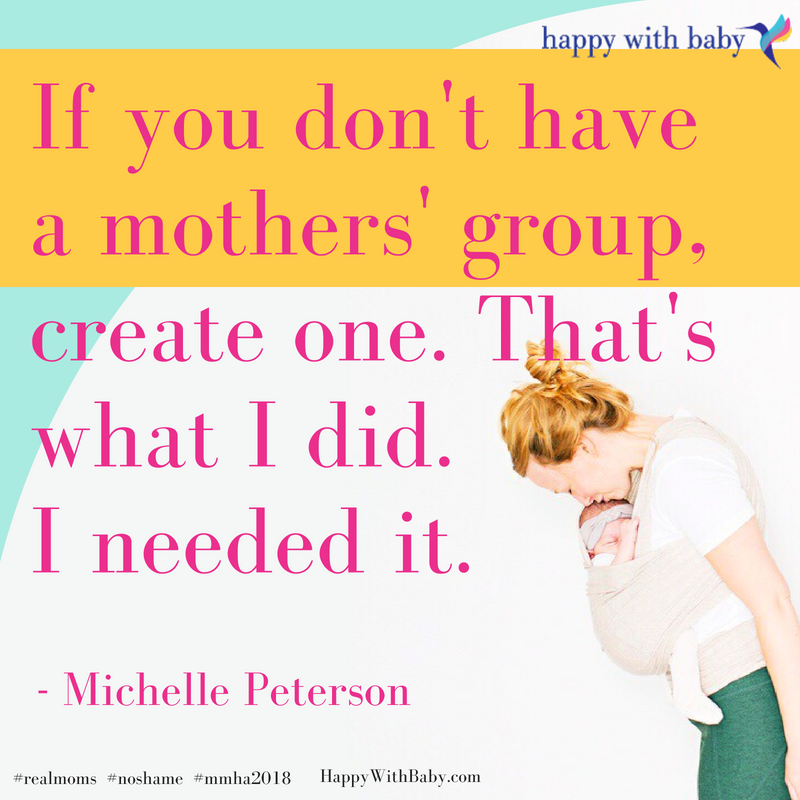
0 comments
Leave a comment
Please log in or register to post a comment